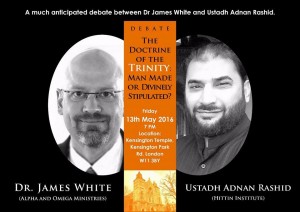Continuing our response to Saifullah & Azmy, we note the next statement:
- Even during the Reformation, the Canon of the Bible, both Old and New Testaments, was called into question.
If by this statement we are meant to understand that there was a dispute over the Apocryphal books at the time of the Reformation, just has there had been in the days of Augustine and Jerome 1,100 years earlier, that is a given. If it is simply meant to recognize that the Council of Trent reacted against the Reformation by going against the best scholarship of even the Roman communion by elevating the apocryphal books to a position they did not hold with the people of God to whom they had been committed, let alone in the views of those early Christians who had the most knowledge of the Old Testament and its canon, again, this is hardly new. It surely would not follow that Rome’s action, however, impacts the existence, let alone the function, of the Bible as a whole (her aim was to add to, not take away from), and most especially of the New Testament. Yet, when we look at the rest of the paragraph, we read,
- No one had defined the limits of the Bible until the (Catholic) Council of Trent, 1546.
Such an assertion is false on its face, of course. One only need to read Athanasius’ 39th Festal Letter, or consider Melito’s inquiry into Palestine at the end of the second century, to know otherwise. If our authors are trying to say that Rome had not dogmatically (and hence, in the modern viewpoint infallibly) defined her canon, that is quite true. But once again, there is a vast difference between an infallible declaration on Rome’s part and the clearly functioning, well known canon of the Scriptures that had been in place more than a millennia. The intention of the writers is clear in the concluding line of this paragraph:
- So, even 900 years after the advent of Islam, the Christians were bickering about which books should go into the canon and even more so the Protestants.
This kind of rhetoric may be impressive to those already following the Islamic line, but to anyone familiar with the issue of the canon of the Bible, it is a clear indication that the authors’ prejudice is going to greatly influence their choice of data, their use of history and scholarship, and their final conclusions, all to the detriment of truth. Remember the opening comments that were offered: Islam doesn’t have to worry about canon issues simply because the Qur’ân is a document created by a powerful, centralized religious structure, one that has a very long history of suppressing dissension and deciding difficult issues by force, not by usage over time. The very same considerations that remove the Qur’ân from such areas of dispute likewise keep us from being able to trace the text itself to its originator, and likewise force us to simply accept, de fide, the conclusions of that religious authority.



